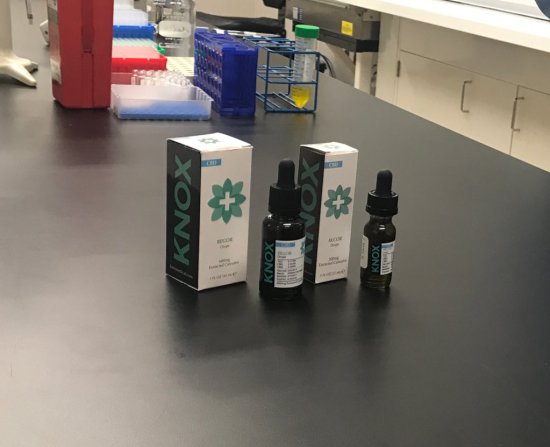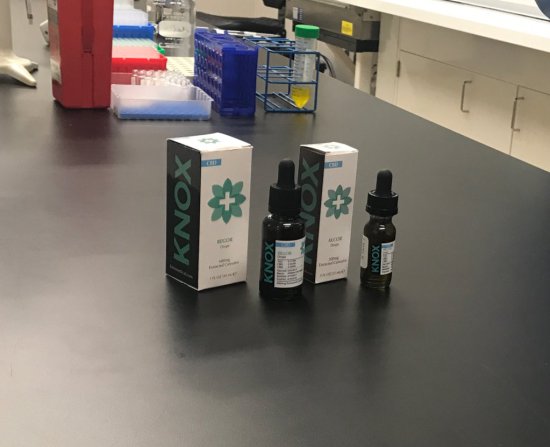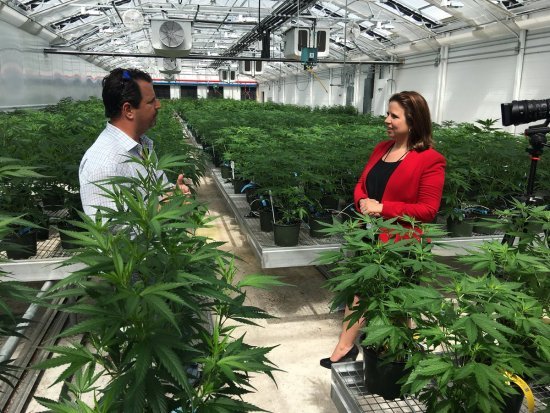Texas is weeks away from the first legal sale of medical marijuana.
Two years after lawmakers legalized the drug for epilepsy patients, the state has licensed a company operating as Knox Medical to dispense the drug.
CBS11 travelled to Winter Garden, Florida, where the company has already broken ground as one of the first medical marijuana dispensaries there.
“I never thought in a million years, I’d be growing marijuana,” admits Bruce Knox, the company’s COO and chief cultivation officer.
A half hour’s drive from Disney World, hundreds of marijuana plants are growing in the greenhouse he oversees.
“I grew up extremely… with conservative values, and I’d never even seen a cannabis plant prior to getting into this,” said Knox.
His late parents, both retired law enforcement officers, founded Knox Nursery in 1962.
In 2015, Knox teamed up his family business with Cansortium Holdings to create Knox Medical.
“I was fortunate enough to go ask my dad about two weeks before he passed what he thought about this,” recalled Knox. “He said that I never thought that it should be legal.”
In September, Texas awarded a new branch of the company, Cansortium Texas the state’s first license to dispense. Customers will see it operate and sell products under the same Knox Medical name it uses in Florida.
Marijuana plants are now growing under tight security at a facility in Schulenburg, Texas.
“We believe we will be ready by the end of the year,” said Jose Hidalgo, Knox Medical’s CEO and founder.
CBS11 asked Hidalgo why he wanted to expand to Texas.
“Because I think this is the future of medicine and there are millions and millions of people who can benefit from this medicine,” he answered.
Texas and Florida are also similar, he said, with large populations and largely conservative politics.
Both states passed laws allowing non-smoking forms of the drug to be used for limited medical purposes.
In Florida, levels of THC, the psychoactive ingredient found in the plant, are capped at .7 percent for most patients. Texas will bar any substance with levels above .5 percent.
In Texas, only patients with intractable epilepsy will be able to legally purchase medical marijuana. That’s an estimated 150,000 eligible Texans.
Florida started likewise legalizing the treatment only for patients with seizure disorders and cancer. It has since expanded that list to include almost a dozen different conditions.
CBS11 asked Hidalgo if he is counting on Texas doing the same.
“As I always say, we’re not politicians, we’re operators. We’ll leave the politicians to be politicians,” he said.
The venture is still a risky one.
A Florida government website warns, “While medical marijuana is available… it remains illegal under federal law.”
To distinguish their products from recreational forms of the drug, companies like Knox Medical prefer to use the term “medical cannabis” and they emphasize precision, safety and science in its preparation.
From the greenhouse, the plant is harvested, dried and treated.

“We grind it up to a coffee like consistency,” said Alex Karol, the lead chemist at Knox Medical.
It’s cooled and purified
“What we’ve technically done is combined hundreds of plant materials down into this beaker alone,” said Karol.
Finally, it’s diluted into its final form – an oil that appears, packaged and labelled.
“So that we can provide an even and measured dose,” Karol explained.
The company plans to use unmarked vans to deliver their product across Texas with security measures in place to keep it from getting into the wrong hands.
A peak inside similar vehicles in Florida reveals cages and camera to guard its cargo.
Each driver’s uniform has a body camera, too, as they deliver the drug directly to homes and offices.
Patients use the oil by placing drops under their tongues.

Because THC levels are low, they don’t experience the “high” that recreational users do.
Doctor Joseph Rosado was one of the first in Florida to start recommending cannabis.
Many physicians, he says, remain reluctant.
“There’s a lack of research in the United States, again, because it’s a schedule one drug, and as long as it remains a schedule one drug we won’t be able to do any clinical trials in the United States.”
Because of that, insurance companies won’t help patients, who pay out of pocket for doctor’s visits and the medication.
Doctor Rosado, though, says the drug is an effective one.
“For a child that is having 200 to 300 seizures a day and drops down to 2 to3 seizures a month, that’s better than a slam dunk,” said Rosado.
To access the drug in Texas, epilepsy patients will have to have a prescription from a neurologist who’s on the Compassionate Use Registry of Texas, or CURT.
As of today, five doctors statewide have registered. Only one is in North Texas.
They will not be able to prescribe cannabis until companies have it available for sale.
Knox Medical believes it is on track to begin selling in December.
A second company now licensed by the state, Compassionate Cultivation, expects to begin operating early next year.
credit:420intel.com







